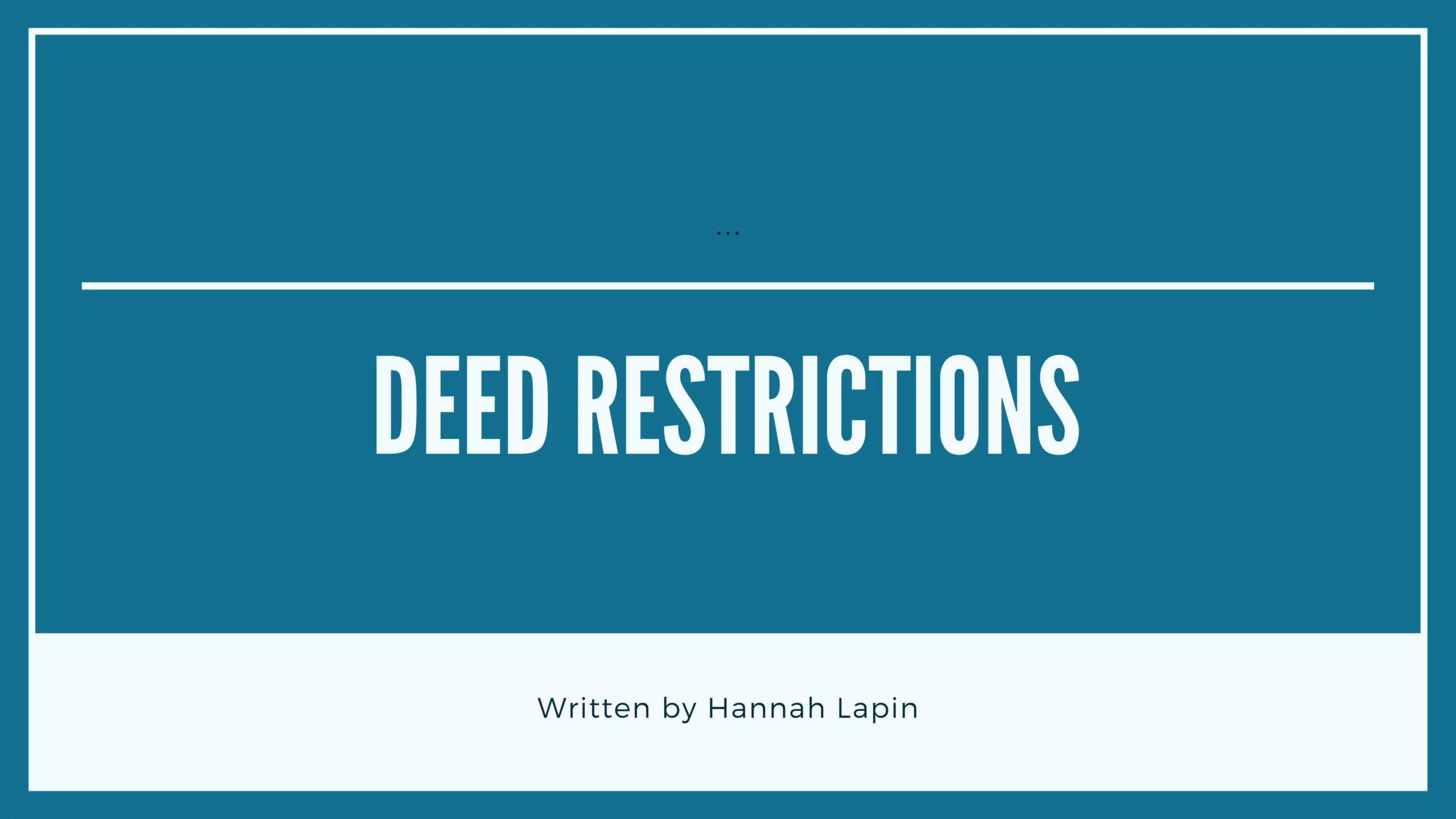When purchasing an investment property, it’s critical to check for deed restrictions. These rules and regulations can limit what you do with your new purchase. While a deed restriction may frustrate new property owners, it plays a critical role in protecting home values and ensuring a safe community.
Any person purchasing a property, whether an investor or a homeowner, needs to understand the impact of deed restrictions on their sale. A deed restriction can lead to legal challenges in the future and hinder your renovation plans, so when you sell, you may run into issues with marketability. As such, take the time to research the specific deed restrictions and consider how you can work with them rather than against them.
Due Diligence
Just as you investigate title issues before signing a contract, you must also look at deed restrictions. Pull property records with the county clerk or municipal clerk during the early stages of navigating a sale to see what deed restrictions, if any, are applicable.
Also known as real property records, these records tell you about the title history of the property and any restrictions on its usage. These public records are readily available at the local clerk’s office, sometimes for a nominal fee. The title company will likely have a copy too.
Legal Advice
In some cases, it’s possible to remove deed restrictions through a form called a restriction release, which you will take to the municipal clerks as a petition. The governing body, such as the homeowners association, will then have to consent to have the restriction removed. Sometimes, they will refuse, in which case you may need legal counsel.
Some deed restrictions expire, while others are in perpetuity. You’ll need to learn the expiration date. If it’s in the near future, it may be best to wait for your renovations until you’re free and clear.
Understanding Implications of Deed Restrictions
HOA rules may significantly limit what you can do with the property in the future. For example, you may not be able to turn the building into a flex space or separate it into a duplex. Think these matters through before you sign anything.
If you’re holding title with others, sit down together and develop a plan that determines whether you want to challenge the deed restriction or, if not, how you will navigate its rules.
Deed Restrictions vs. Zoning Laws: Understanding the Difference
Both zoning restrictions and deed restrictions will determine the ways that you can use property, but they do so in different ways. Each has its role, but zoning restrictions tend to be more universal. Nearly everywhere has zoning laws, but only some places have deed restrictions. Let’s take a closer look.
Deed Restrictions
A deed restriction is on property rather than land. This may not seem like an important distinction, but remember that property includes the land and anything built on it, while land is only about the actual patch of ground. This means that deed restrictions apply to houses and their grounds. They’re usually put in place after houses have been built.
The deed restriction is usually enforced by a homeowners association, sometimes at the behest of the original developer, and is meant to protect the neighborhood’s value. Not every house will have a deed restriction, and they are more easily amenable than a zoning regulation as long as you have the cooperation of the HOA.
Zoning Laws
Zoning laws are public property records that say what can be built on a specific section of a municipality. A common one is delineating commercial, residential, and industrial areas. They are not easy to amend, and they are more universal, and controlled by a city government rather than individual neighborhoods.
For example, zoning restrictions will say whether you can put a gas station in the middle of a suburban neighborhood. You can think of it like this — a zoning law tells you where you can put a house, but a deed restriction tells you what it can look like and what kind of landscaping it can have.
The Role of Deed Restrictions in Real Estate Planning
Before taking ownership of a property, you must understand how deed restrictions dictate how you can renovate and manage it. These rules are implemented to ensure that a community maintains its property value and remains an attractive, quality place to live.
In addition, they can help forestall common rental property issues such as loud noise and pet violations by providing you with a clear list of rules to provide to tenants.
Ready to get started with purchasing your first rental property? Visio Lending can help. We offer high-quality service, competitive rates, and numerous attractive options for investors. Review our rental property loans, or learn more about how to become a real estate investor with our helpful guides.
Contact us today to learn more about our streamlined loan process specifically designed for commercial real estate.






